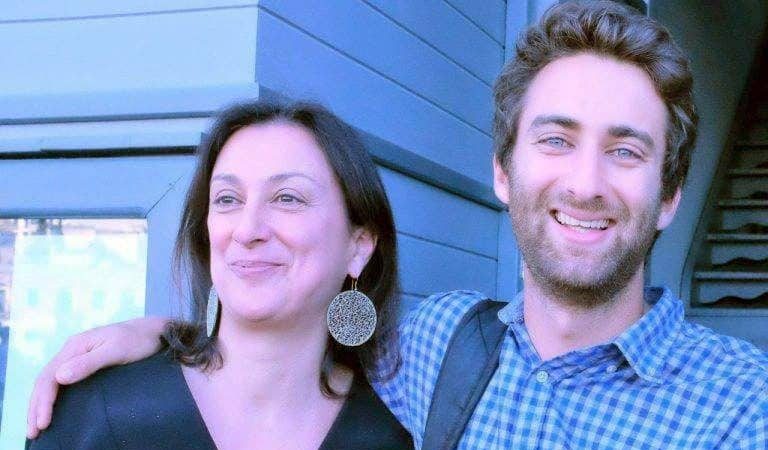The son of murdered journalist Daphne Caruana Galizia likened the last few months to watching two disasters unfold in slow motion.
Speaking at The Nieman Foundation for Journalism at Harvard University, Matthew Caruana Galizia said “the first was the assassination itself—you could see it coming from a mile off—and the second was what happened afterward with respect to the police investigation.”
He said following the arrest and arraignment of the three people charged with his mother’s murder the government declared victory but the investigations should not end here.
“The three people charged with her murder—whom she had never written about, and they probably had never even read anything she wrote—were very low‑level criminals, and the government declared victory after they arrested them,” Caruana Galizia said, adding that together with his two brothers he was working very hard to put international pressure on the government to keep the investigation open.
“After an event we had at the Council of Europe in January, Malta’s minister of home affairs made the first public statement that they would continue looking for the mastermind. It was the first time that they had ever used that word, and it was only due to the international pressure. Still, they’re very keen to sell this as a kind of closed case, because of course it looks terrible when a journalist is assassinated in your country, especially if she was investigating state‑level corruption.”
But the Maltese government, Caruana Galizia noted, is very keen to make it seem as though “she was investigating something related to drug trafficking, which is what these criminals were involved in, and she wasn’t. She wasn’t working on anything related to that.”
“The thing is, her assassins didn’t just kill her. It was a complete act of impunity. They blew up her car 200 meters from our home in broad daylight. The explosion was powerful enough to blow the car 200 meters into a field. They were sending this message, ‘We can do this and we can get away with it’.”
If journalists get threatened, it’s a sign of deeper problems in the country, he said, adding that the last words his mum wrote before being assassinated ‘There are crooks everywhere you look now. The situation is desperate’- a phrase which will forever be associated with the murdered journalist – signified the institutional collapse in Malta.
“She meant that, as an investigative journalist, she was standing alone. The institutions of the state had been captured, compromised, and rendered ineffective, so even though she was putting the results of her investigations out there, no action was being taken. She didn’t have the backing of any institution,” Caruana Galizia said.
Drawing a comparison with Israeli Prime Minister Benjamin Netanyahu who is accused of receiving bribes from powerful businessmen and of colluding with the publisher of a major newspaper to receive favourable coverage, Caruana Galizia said “at least the police haven’t been compromised and they’re still pushing for a prosecution. Whereas, when my mother was alive and now currently, that wasn’t the case. There was no one pushing for any kind of action on any of the things that she was revealing. This meant that she was alone and exposed.”
He added that MPs, the police and the judiciary showed no will to take any action. “[This] meant that, if you wanted to stop this pressure, then all you had to do was get rid of her. Even the opposition party had been completely compromised.”
But offering a glimmer of hope, Caruana Galizia said that although most journalists were succumbing to legal threats, a few were resisting these pressures.
“The funny thing is that Maltese journalists seem to be more afraid of what precedes the assassination, which is all the libel suits. This happened with my mother; the threats ramped up from all directions,” Caruana Galizia said, adding that the murdered journalist was threatened with a $40 million lawsuit.
“Sadly, journalists have come to look at this as a kind of occupational hazard which I think is completely unacceptable. You shouldn’t accept this as a condition of your work. In no other field does any professional accept daily legal threats as a kind of condition of their employment.”
However, Caruana Galizia said, The Shift had stood up to legal threats by Henley and Partners. “When they’ve been threatened with libel suits, they’ve published the legal letters. That’s the first time any Maltese journalist apart from my mother has ever done this,” he said.
“They published the threats on their website saying, ‘Look, we’ve received this threat saying that a libel suit will be filed unless we remove these articles, and we think it’s our duty to inform our readers.’ I think this is a good move because it shows readers what’s happening and what the journalists are risking.”













